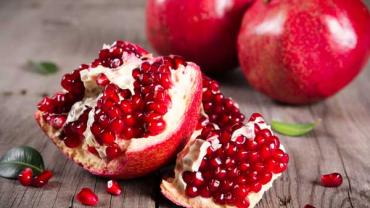
As the summer season comes to an end and autumn approaches, farmers’ markets and grocery stores will be full of seasonal produce to prepare us for the holiday season. For many of us, the end of year celebrations include hot apple cider, roasted turkey with fresh cranberry sauce, and pumpkin pie!
Summer isn’t the only time of year abundant with nutritious fresh fruits and vegetables. The fall harvest yields copious amounts of healthful fruits and vegetables that everyone should consider adding to their shopping carts, not only for their taste but also their high content of antioxidants and polyphenols.
Polyphenols are a large group of naturally occurring antioxidant compounds, namely flavonoids and non-flavonoids, in plant-based foods. These compounds are typically found in the skins of fruits and vegetables as a survival mechanism to protect the plants from other harmful pests and animals. For humans, these polyphenols impart similar effects - helping fight off foreign invaders, and neutralize free radicals and oxidative stress caused by a variety of factors (i.e. bacteria, viruses, xenobiotics, stressors) in the body, which are the hallmarks of chronic diseases. According to the NIH, foods and supplements rich in antioxidants and polyphenols may help prevent or delay disease and that those who consumed more fruits and vegetables had a significantly reduced risk of cardiovascular disease, stroke, cancer, and cataract development.
Among the most commonly consumed fruits in the United States, cranberries rank highest in total antioxidant activity. In a recently published animal study, administration of 100% cranberry juice (CJ), that is very high in anthocyanins, and pure polyphenols (quercetin, catechin, and hesperetin) resulted in significant increases in total antioxidant capacity in mice and hamster
organs, hypothesizing that dietary polyphenols may reduce risk of chronic illness at the site of disease. Moreover, a double-blind, placebo-controlled trial investigating the effects of daily supplemental cranberry fruit powder in men with prostate cancer (PCa) found significant reductions (22.5%) in serum prostate-specific antigen response as well as down-regulation of cancer-proliferative RNA proteins compared to the control group. These findings suggest that whole cranberry consumption may be a proactive method for PCa and recurrence after prostatectomy.
Cranberries are not the only fall fruits replete of phytochemicals. In fact, apples, grapes, persimmons, pears, and pomegranates are loaded with them as well. So, don’t worry if you’re not the biggest fan of the tart, bitter berries! An in vitro study published in the journal Antioxidants identified 20 different phenolic compounds among 15 different apple varieties, quercetin flavonols and vitamin C being the major contributors of total antioxidant capacity. In the Journal of Nutrition and Metabolism, the acute intake of Bordo grape juice reduced lipid peroxidation by inhibiting the production of free radicals within the cells and increased overall antioxidant activity in healthy adult volunteers.
Consider ways to incorporate more of these fruits into your diet to boost your body’s own antioxidant activity. Snacking cannot get much easier than grabbing a crisp apple or a handful of grapes from the refrigerator for your work commute, the kids’ lunch, or after dinner “dessert”.
Though very beneficial to health, munching on fresh cranberries may not be as palatable as an apple or grapes, so consider baking with them or adding dried cranberries with no sugar added to salads and soups. Try this low-glycemic fresh cranberry-apple sauce to accompany your Thanksgiving meal or this comforting pomegranate chicken with a generous side of
oven-roasted delicata squash and apples. Charm your guests with this persimmon pie or homemade pear & cranberry crisp - whole-food dessert options. Be cautious of excessive fruit juice consumption as the fruits’ fiber is removed in the juicing process which can spike blood sugar, and opt-in for the whole fruit in order to maintain healthy levels. Choose organic when
possible to avoid exposure to pesticides that induce oxidative stress.